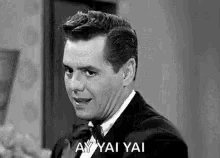“Mortimer Adler and the Great Books people were basically progressives,” said one of my professors this spring in our History of American Education course. It came as a surprise to me, who had seen Adler’s Great Books of the Western World in the libraries of classical Christian schools (which pride themselves on not being progressive––take that, Dewey). Of course, there was some deliberation over in what way the Great Books guys were really progressive, if at all. My favorite part of the discussion was when we read Alex Petkas’ “‘Great Books’ is for Losers.”
Petkas’ emphasis on Great Men as opposed to Great Books or Great Ideas intersected with a number of conversations I had been having and books I had been reading at the time. One of these was The Abolition of Man which we read in another course. Although my fifth time through, I discovered that I still didn’t understand exactly what Lewis meant by the chest. An essay by Paul Lorenzini helped (and sometimes confused) my understanding, particularly the connections he made between Lewis and Carl Trueman’s Rise and Triumph of the Modern Self. Trueman brings the “men without chests” idea up-to-date and gives more of the intellectual history behind expressive individualism, the notion of the self as sacred and self-determining.
Lewis asserts that “The head rules the belly though the chest.”1 As the intellectual part of man, the head deals with ideas. In The Abolition of Man, ideas are true or false as they align with the Tao. For the head to rule properly, it must be properly aligned with the Tao. I tend to assume that education of the head comes through formal, idea-based, intellectual training. Up to a certain point, this is true. Reading, lectures, and writing engage the mind in ideas perhaps more directly than any other means.
The trouble is, the power of the head comes through the chest. This is why I tend to think Petkas is on to something. Great Books and Great Ideas are indeed great, but I’m not sure they reach the chest directly. Great Men, on the other hand, provide models which appeal to the chest.
Much of my evidence comes from experience: I adopted many things and avoided others in attempts to imitate certain people. We call this mimetic learning. My attraction to Spanish culture came from my grandparents (they were missionaries to Mexico), watching Ricky Ricardo, and listening to Spanish music. (In a context where musicians are marketed, not just their music, it seems fair to say that this was a mimetic instinct, an attraction to the artists’ aesthetic.) My attraction to academia came through charismatic professors and reading authors like Lewis. In my senior year of college, I watched a TV series with a lot of fistfights. I tried out boxing around the same time.
In each scenario, my behavior was shaped by the example of other individuals. My behavior shaped my thought. Some of these models were not great. Some were problematic. Nevertheless, it was these models which manifested ideas, good or bad, in a way which formed my chest.
Last fall, I gave a conference presentation on Kierkegaard and existential education (I turned my notes into an article published in November). Reflecting on my experience as a student, I argued: “The real question that students face is not ‘What do I think?’ but ‘What do I do?’” When I started teaching, I noticed I imitated certain practices from the teachers I admired most. The teacher’s job is to be a great man and channel the example of the great men who have come before him. They are the gateway between students and the great men of history. Unfortunately, teachers are fighting against the current of mediocrity. A number of the models I found from pop culture provided cheap imitations of greatness which kept me from seeing the real thing. Pop culture offers models which are more immediately appealing and more understandable to a child because they speak in simple language and offer low ideals. Great men come through texts which require translation, not just across language, but across time, culture, and convention. The teacher is always a translator, drawing the student out of his immediacy and into stories which require discipline and patience. To do this, the teacher must himself walk down the path set by great men.
Great Ideas and Great Books will mean little to a student who thinks his stomach is his chest or whose idea of virtue comes from Netflix and Spotify. Whatever logical and rhetorical tools they are given will likely be used to fuel their cynicism and suspicion of anything truly great. Great Men conveyed through Great Books embody the Great Ideas in a way which makes them more accessible. The teacher stands in the middle. If the students admire and respect their teacher, they will want to imitate him. Likewise, the teacher who lacks respect will undercut whatever he teaches. Paul urged the Corinthians to “Imitate me, just as I also imitate Christ.”2 The teacher encourages or discourages the students from imitating him and in turn those whom he as the teacher imitates. Eventually, they will be able to imitate Great Men on their own without the teacher’s mediation. Either way, the ideas they hold and the books they read have much more to do with who they want to be than what they want to think.
C. S. Lewis, The Abolition of Man (New York: HarperOne, 1944/1971), 24.
1 Corinthians 11:1, NKJV.





Great article, Sam
Great stuff, Sam! 'The Abolition of Man' has so much packed into it. Thanks for helping me grasp it just a little better today!